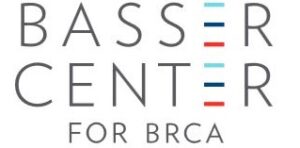Male Breast Cancer
- Black women are 72 percent more likely than White women to be diagnosed with inflammatory breast cancer.
- Black women are diagnosed with this cancer at an average of four years younger than White women.
- Black women die an average of one and one-half years earlier than White women with the disease.
Beyoncé's father is a BRCA carrier and cancer survivor
Mathew Knowles, 67, a music industry executive and father of singer Beyoncé, noticed blood spots on the new white T-shirts his wife Gena bought him in 2019. “I said, oh, maybe it’s something to do with these shirts,” he remembered. But when Gena found blood on the sheets on his side of the bed, an alarm bell went off.
Early in his business career, Knowles worked for Xerox selling breast cancer diagnostic imaging equipment to hospitals and health facilities. A breast discharge, he had learned, was one of the signs of male breast cancer.
“So I immediately called my referring physician, said I need to get a mammogram. We got one immediately like the next day and then we got a biopsy.” Diagnosis: breast cancer. A few days later, Knowles had a unilateral mastectomy.
Genetic testing revealed he carried a BRCA2 gene mutation. His family history suddenly made sense. His maternal aunt and her two daughters had died of breast cancer and four of this father’s brothers died from prostate cancer. BRCA mutations increase the risk of both cancers.
Knowles is now cancer-free. Beyoncé and her sister Solange have tested negative for the mutated BRCA2 gene, according to reports in the media.
5 minute video from American Association for Cancer Research
 Men with a mutation in the BRCA2 gene also have an increased risk of breast cancer, with a lifetime risk of about 6 in 100. BRCA1 mutations can cause breast cancer in men, too, but the risk is lower, about 1 in 100. BRCA mutations also increase the risk of prostate and pancreatic cancers in men.
Men with a mutation in the BRCA2 gene also have an increased risk of breast cancer, with a lifetime risk of about 6 in 100. BRCA1 mutations can cause breast cancer in men, too, but the risk is lower, about 1 in 100. BRCA mutations also increase the risk of prostate and pancreatic cancers in men.
Although mutations in these genes most often are found in members of families with many cases of breast and/or ovarian cancer, they have also been found in men with breast cancer who did not have a strong family history.
Mutations in CHEK2, PTEN and PALB2 genes might also be responsible for some breast cancers in men.
Source: Risk Factors for Breast Cancer in Men (American Cancer Society, 2018)
For more information about signs, symptoms, diagnosis and treatment of breast cancer in men, see “Breast Cancer in Men” on the American Cancer Society website.

While cancer risks in male BRCA mutation carriers are not as dramatically elevated as those of female BRCA mutation carriers, cancer risk management and early detection are vital.
It is important for both men and women to remember that a family history of breast, ovarian, prostate or pancreatic cancers on their father’s side of the family may indicate a hereditary gene mutation.
Many people mistakenly believe a family history of breast or ovarian cancer only matters on their mother’s side of the family. Men can inherit a BRCA gene mutation from their mother or father and can pass on their BRCA gene mutation to their male and female children.
Medical management for men with BRCA1/2 mutations changes at age 35–40. Ages at which screenings begin are dependent on family history and should be discussed with a physician.
For more information about screening and genetic testing, see “BRCA1 and BRCA2 in Men” on the Basser Center for BRCA website.


